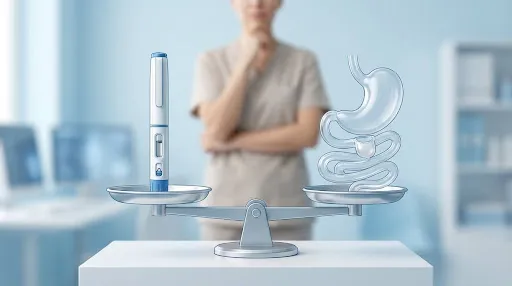For many men, Viagra has become a trusted name when it comes to improving sexual performance and confidence. But one common question lingers: How long does Viagra last?
Understanding its duration isn’t just about planning; it’s about feeling confident and in control. Whether you’re new to Viagra or already using it, this guide will cover everything you need to know to get the best results
How Long Does Viagra Last?
The effects of Viagra (sildenafil) typically last for 4-6 hours. However, individual responses vary based on dosage, metabolism, food consumption (fatty meals can delay onset), age, and overall health.
The medication usually starts working within 30-60 minutes after taking it.
It is crucial to understand that Viagra does not cause a continuous erection for 4 to 6 hours. Instead, it improves the natural response of the body to sexual arousal during this period. This makes it easier to achieve as well as maintain erections when sexually active.
Viagra Timeline You Can Expect
-
Onset of Action: 30 to 60 Minutes
-
Peak Effectiveness: 1 to 2 Hours
-
Continued Effectiveness: 2 to 4 Hours
-
Gradual Decline: 4 to 6 Hours
-
Minimal Effects: Over 6 Hours
Factors That Impact How Long Viagra Lasts
The duration of Viagra's effect can vary based on the following factors:
1. Dosage
-
Higher doses of Viagra may have an effect for a prolonged period.
-
But they may have an increased risk of side effects.
2. Age and Metabolism
-
With aging, metabolism slows down, which leads to slow kick-in and excretion of Viagra by the liver and kidneys.
-
This extends the duration of the Viagra in the system.
3. Diet
-
Taking it with heavy and fatty foods can delay its effects by changing the metabolism of the medicine and slowing down the rate at which the stomach empties.
-
So, have it on an empty stomach, which helps with faster absorption and faster results.
4. Lifestyle Factors
-
According to the Centers for Disease Control and Prevention (CDC), excessive alcohol intake can impair erections.
-
Hence, drink in moderation, but caution is always advised.
5. Overall Health
-
Conditions, such as liver issues, diabetes, neurological conditions, kidney problems, or heart disease, can impact the effectiveness of Viagra.
-
These conditions can block the blood flow to the penis, interrupt the signal that stimulates an erection, and cause nerve damage.
6. Medications
-
Certain medications, antibiotics, nitrates, alpha-blockers, and medicines for blood pressure can interact with Viagra, which can impact its stay in the system.
-
Using two medicines at the same time can alter the metabolism and excretion of the medicines.
7. Psychological State
-
If you feel nervous, anxious, stressed, or depressed, it can impact the response of your body to sexual stimulation.
-
If you are not comfortable or relaxed during sex or if you experience performance anxiety due to previous sexual experiences, the effects of Viagra may not last for a long period.
For How Long Can You Take Viagra?
There is no specific duration for the use of viagra. But there are some mixed results. A study shows that the effectiveness of this medicine starts wearing off after 2 years when used consistently, while other long-term research found that this medicine was still effective and safe after 4 years. It is best to take it for the long term only under a doctor's guidance. If you do not notice any changes, they can help with other effective treatment options.
To ensure it remains the right treatment for your health needs:
-
Take viagra for long-term use only under a doctor's guidance.
-
Get regular health check-ups, as with aging, chronic medical conditions, such as high blood pressure and heart issues, are common, which can interrupt Viagra's effectiveness.
-
Do not take it more than once every 24 hours. The healthcare professionals can determine the appropriate dosage for you and adjust it based on the efficacy and side effects over time.
-
If you experience no improvements, tell the healthcare provider, who can suggest a dosage adjustment or alternative treatment, such as tadalafil.
In a nutshell, as long as you have no medical problems and you are under the monitoring of a doctor, you can continue using this Viagra for several years.
How Does Viagra Work?
Here’s how it works:
Blocks a Specific Enzyme
-
Viagra contains sildenafil citrate, which blocks a PDE5 enzyme, which is responsible for breaking down a substance, known as cGMP, and cGMP helps with blood flow.
Increases Blood Flow to the Penis
-
By preserving the potent cGMP, it helps relax the blood vessels present in the penis. This, thus, boosts blood flow to the penis during sexual arousal.
Helps Achieve & Maintain an Erection
-
The sufficient flow of blood to the penis makes it easier to achieve and maintain an erection when you are sexually active.
How to Maximize Viagra's Duration and Effectiveness?
Here are some tips to follow:
-
Set the optimal timing: Take Viagra 30 to 60 minutes before engaging in sex. This timeframe allows proper absorption of the medicine into the bloodstream and reaches its peak effect.
-
Take a proper diet: Avoid heavy, high-fat meals before taking the medicine, as they delay absorption, prolonging the time it takes to show its effects.
-
Ensure sexual stimulation: This medication only works when sexually active. Otherwise, it won't cause an erection itself.
-
Stay hydrated: Drink plenty of water, as dehydration can lower the effectiveness of Viagra.
-
Limit alcohol intake: Do not take excessive alcohol, as it reduces blood flow and interferes with achieving and maintaining an erection.
-
Avoid smoking: Can negatively interrupt the flow of blood to the penis and thus reduce the efficacy of the medicine.
-
Get adequate rest: Insufficient sleep or fatigue can reduce sexual performance and reduce Viagra's effectiveness.
-
Manage stress: Practice stress reduction techniques, like breathing exercises or meditation, to manage stress. A study says that increased stress levels can disturb sexual performance.
Potential Side Effects of Viagra
The following are some of the side effects of taking Viagra when taken more than recommended:
Conclusion
Understanding how long Viagra lasts can help you plan better and use it more confidently. On average, its effects remain for about 4 to 6 hours, though this can vary depending on your health, dosage, and lifestyle factors. More than just improving performance, Viagra is often about regaining confidence and intimacy in your relationships. To get the safest and most effective results, consult a healthcare professional before use, and always take it responsibly.
Also Read: 6 Benefits of Taking Viagra Daily For Sexual Health
Frequently Asked Questions
Which strength of viagra lasts the longest?
Higher doses (100 mg) of Viagra last the longest. It takes slightly longer to reach the maximum level in the body.
Does Viagra Connect last longer than Viagra?
Though both types work similarly, Viagra Connect is not available in higher doses (100 mg). So, Viagra lasts longer because it is available in a 100 mg dose.
How long will I last if I take Viagra?
The effects of Viagra typically last 4-5 hours, though this varies based on dosage, metabolism, and other individual factors.
Will taking many Viagra pills help with erection?
Taking many pills simultaneously is not advisable, as it can cause many problems.
How long will 100 mg of Viagra last?
Viagra typically remains active in the body for 4-6 hours, though effectiveness may vary between individuals and factors like food intake can affect duration.
Can Viagra last for ten hours?
No, Viagra's effects typically last 4-5 hours, though some men may experience effects for up to 8 hours depending on dosage and individual factors.
Will Viagra help you last all night?
No, it doesn’t. Consult a doctor for specific medical advice about sexual performance concerns.
Is long-term Viagra use safe?
Yes, it is safe for many men when taken under a doctor's guidance. However, regular health checkups are crucial to monitor the Viagra's side effects or underlying health problems.
-User-1754377709.png)
Reviewed by







